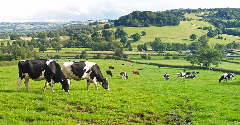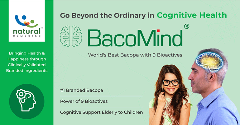News
Strategies of the Probiotics Industry
17 Jun 2013The probiotics market is thriving, and will continue to thrive, because consumer acceptance and knowledge outweighs the difficulties of obtaining official approval for claims. Today’s hectic lifestyle is increasingly linked to digestive health issues. Numerous external influences including stress, travel, illness and antibiotic use may disrupt the intestinal microbiota – potentially leading to diarrhoea and […]

The probiotics market is thriving, and will continue to thrive, because consumer acceptance and knowledge outweighs the difficulties of obtaining official approval for claims.
Today’s hectic lifestyle is increasingly linked to digestive health issues. Numerous external influences including stress, travel, illness and antibiotic use may disrupt the intestinal microbiota – potentially leading to diarrhoea and discomfort. The concept of probiotics has been embraced by Western consumers for decades – and for centuries in the Middle East and Asia.
However: the industry is in a chicken-egg scenario. Are consumers aware enough of the benefits? Or must we invest further?
Huge investments in clinical trials have not delivered the desired on-pack health claims for the mature European market, and, over the last five years, more than 100 clinical trials have struggled to find the model that will convince the approving authorities.
Today’s evidence on gut recovery after diarrhoea and other incidences affecting gut microbial homeostasis is undisputed. However, this addresses a therapeutic, rather than a health-promoting, role for the normal healthy average consumer. The best evidence that may convince the authorities may be in immunity-weakened, very elderly consumers – which also represents a significant market segment.
In Ireland, the word probiotic is no longer ‘tolerated’ by the Food Safety Authority, as probiotics, by definition, provide health – and this is not an approved, substantiated claim. However; consumers still buy their yoghurts and probiotics tablets for travelling, and the market continues to soar. Probiotics are appearing in increasing numbers of innovative new products around the globe.
In the ingredient industry, we’re very preoccupied these days with semantics. The good news, though, is that we at Canadean have found, after screening approximately 10,000 articles from news, blogs and social media, that this word is deeply rooted and cannot be eradicated overnight by legal experts.
By analysing 10,000 articles, blogs and commentaries written by experts, wannabe experts and laymen in the four main languages (English, Spanish, Mandarin and Hindi), we found that approximately 70% originated in North America, 17% in Asia Pacific, 14% in Europe and just 1% from Latin America. Ratings according to sentiment showed that 62% were positive and 28% negative – so the state of the industry is not as bad as the industry may think itself.
Further scrutiny indicates that consumers have reached a stage of education where they are starting to look at the benefits, with discussions of gut, infection and immunity, as well as strains. We found that Lactobacilli are the most positively discussed probiotics across all the continents.
Findings like this raise reflections on the probiotics industry’s overall strategies. Is more science necessary – or do consumer sentiment and stage of education count for more? Does an on-pack claim or general education about gut health, as Yakult has been practising for a long time, create better business growth conditions than the legal and scientific route?
Related news

Has ‘clean’ had its day?
22 Dec 2025
Wielding clean-label positioning and fortification as marketing levers is a dangerous strategy, and brands would be better off explaining the hows and whys of the ingredients in their products, say experts.
Read more
Celebrating the winners of the Fi Europe Innovation Awards 2025
3 Dec 2025
Food industry stakeholders celebrated as the winners of the Fi Europe Innovation Awards were announced at a ceremony in Paris.
Read more
Alternative protein startups pivot to B2B ingredients amid funding shift
27 Nov 2025
Alt protein startups are pivoting from consumer meat analogues to high-value B2B ingredients, driven by stronger investor interest, better margins, and clearer commercial pathways.
Read more
Walmart Marketplace’s record growth prompts search for UK sellers
26 Sep 2025
Walmart’s third-party e-commerce platform, Marketplace, has witnessed extraordinary growth – but a need for more product diversity has prompted the retailer to recruit UK sellers.
Read more
The winners of Vitafoods Europe Startup Challenge 2025 revealed
29 May 2025
Four startups – Yomio Drops, PFx Biotech, Revobiom, and Favamole – took top prizes at this year’s Vitafoods Europe Startup Challenge awards.
Read more
East takes on West in the fight for future food flavours
30 Apr 2025
Asian and South American flavours are now key components on global menus, driven by a growing global appetite for culinary mashups.
Read more
Food companies urged to bring ‘joy’ and urgency to healthy food mission
14 Mar 2025
For too long, businesses have treated health and sustainability as separate agendas – but there is growing evidence to show diets that benefit human health can also enhance that of the planet, say experts.
Read more
Entries open for inaugural Vitafoods Europe Innovation Awards
29 Jan 2025
Entries are open for the inaugural Vitafoods Europe Innovation Awards, celebrating the ingredients, finished products, partnerships, and initiatives redefining the nutraceutical landscape.
Read more
Paris Olympics: Food and beverage brands champion health, fun, and sustainability
5 Aug 2024
Food and beverage brands are aligning with the Paris Olympics 2024 Food Vision, which emphasises sustainability, local sourcing, and plant-based diets.
Read more
Natural Remedies: Bringing health and happiness via validated branded ingredients
18 Apr 2024
Natural Remedies is an internationally renowned botanical healthcare company committed to advancing the field through rigorous research and the development of clinically validated Branded Ingredients. Guided by our foundational principle of ‘BEING USEF...
Read more